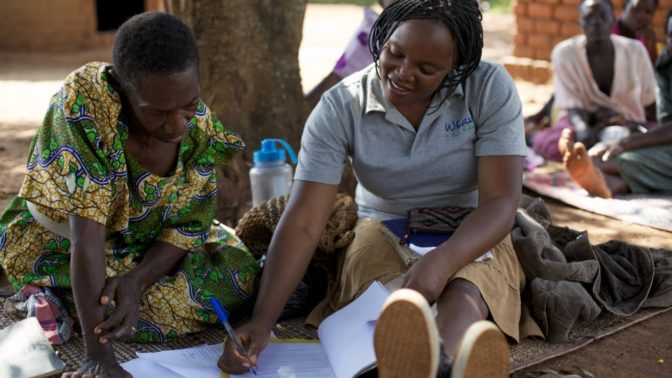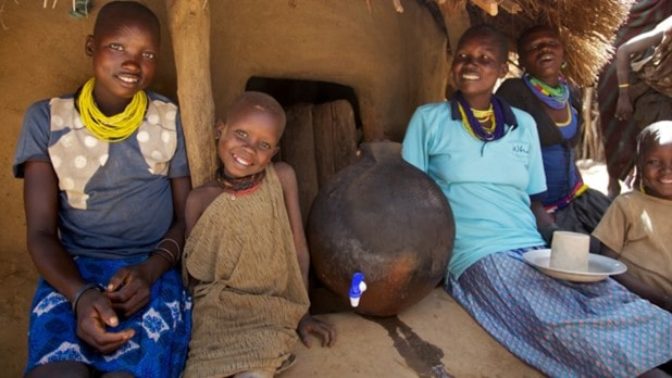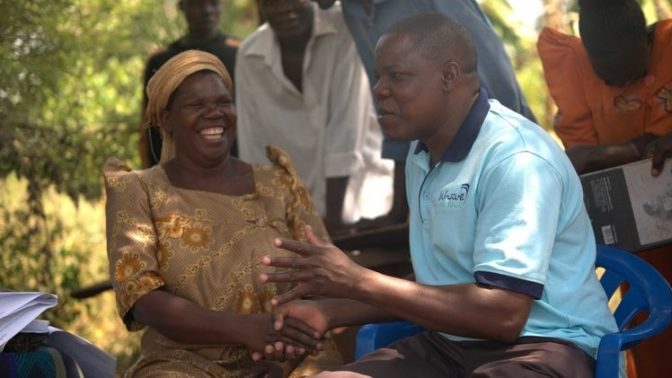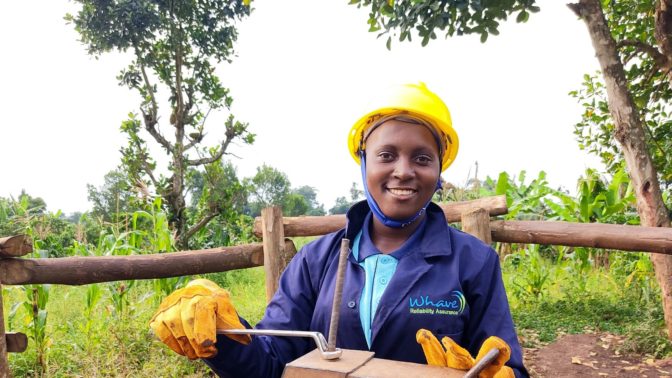Accountable utility service for the provision of safe water in rural areas
Whave Solutions’ service provides 24/7 clean drinking water supply to over 1,000 communities in Uganda.
Key Facts
- Whave Solutions services provide safe drinking water for over 290,000 people in rural Uganda.
- The social organization provides services to 1,000 communities in need the most.
- Several social outcomes have been seen as a result of Whave Solutions services, including better health and increased school enrolment.
- Whave Solutions services provide education and employment opportunities to women and girls in Uganda.
- Eighty-nine percent of Whave Solutions customers surveyed said they are satisfied with the solution.
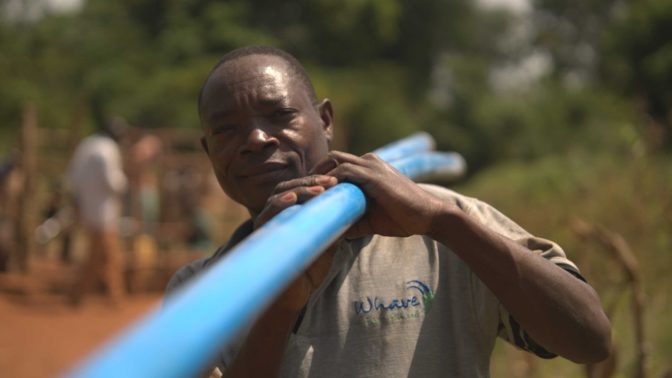
Key Features
Whave Solutions is a long-term comprehensive national solution for the endemic failure of rural water service delivery. The solution is adopting what we call the “accountable utility” approach. Under this approach, 24/7 water supply is the responsibility of a professional entity with which the water user has a contract, to which the water user pays affordable bills, and is regulated by the government. We are promoting the same approach used commonly in cities in Africa (such as Kampala) and in developed countries’ rural and urban areas.
In practice, the “accountable utility” approach means local technicians are hired to maintain water points (e.g. hand pumps, solar pumps), and incentivized through performance pay contracts. A water committee is established for each pump, and it is the responsibility of the committee to collect individual user service fees. Payment confers a “right” to reliable water, ensuring water points are constantly maintained, and repaired immediately if there is a breakdown. This differs from current arrangements, where water pumps can remain broken for weeks, months, or even years at a time.
The specific social outcomes are:
- Better health and productivity due to safe water in rural communities being accessible daily and close to homes and schools;
- Increased school enrolment, especially of the girl child due to reliable close-to-home water supply removing the burden of long-distance water fetching;
- Reduced gender-based violence cases due to water collection time reduction;
- Regular income and long-term cash flow to the local waterpoint mechanics who get stable incomes under this arrangement;
- Regulated pricing of water to affordable levels, reducing from unaffordable baseline prices.
Social Impact
Rural water point functionality is very low in Uganda, causing over 20 million people to depend on unsafe water. Women bear the brunt of the poor family health, and girls miss school and become premature mothers. The solution of an “accountable utility” was developed to provide safer water near homes, schools and premises such as clinics for eradication of diseases such as diarrhoea, dysentery and cholera, and to provide education/work opportunities for women and girls to increase economic growth in rural areas.
We have tested this model over the past nine years in rural Uganda. We operate under formal contracts with 10 district local governments, and provide 24/7 functionality services to over 290,000 people in over 1,000 rural communities. All of these communities are paying for services.
As of December 2022, an average 94% functionality has been achieved. About 88% of breakdowns were repaired within 1 day and 91% repaired within 2 days. Compliance to fees charged was over 55% and customer surveys showed 89% satisfaction. More detailed results can be found on the “Our Results” page on our website.
For each community, Whave also establishes a water committee. Women are encouraged to take leading roles in the committee, and we encourage the community to appreciate the benefit of teenage girls attending school and not being subject to premature motherhood.
Future Plans
We intend to reach 2 million users over the next 10 years, with a view to this paving the way for all 20 million off-grid water users having accountable-utility service. This service will be partly from ourselves and partly from other utilities following our example. Our plan is centered around implementation of the new national O&M policy for rural water, which we advocated successfully in recent years.
The practical implementation process is not easy, and requires:
a) Generating field evidence showing that 24/7 service is feasible in practice, at cost levels which translate to service fees which are affordable, and socially and politically acceptable;
b) Rigorous and verifiable monitoring to generate credible and verified evidence;
c) Generating from field experience and evidence at sufficient scale, guidance to stakeholders on practical mechanisms for implementation;
d) Scaling to reach the full population in need, and matching operational cost and service fee revenue.
Progress has matured to the point where tasks (a) and (b) above are mainly accomplished. Whave’s role now consists of (c) and (d).
Over the next year, we will expand daily safe water services in the regions of Teso, Busoga, Mid-Western, Karamoja and Central. Approximately 50% of the beneficiaries will be women, and 25% will be girls.
There are also indirect beneficiaries. The innovation provides essential information to WASH stakeholders throughout Uganda, including central and local governments, MPs, communities, NGOs, and aid donors, relevant to implementation of the national O&M framework, ensuring safe water 24/7 for 20 million people.
Main Target Group
Communities in rural populations in Uganda are paying a small fee for a 24/7 safe water service. The evidence is clear that the fee levels necessary to match cost are affordable by rural communities. Whave has succeeded in consistently providing 24/7 service at a cost of just over 600E/yr/community. With scaling, we expect this to reduce to 300E/yr/community which translates to less than 0.5E/month/household, or 2000UGX, which is the accepted fee level socially and politically in Uganda over the past 10 years, and is generally considered affordable by stakeholders. In cases where institutional and business water users are paying alongside households, the household fee may reduce to 1000UGX per month.
Currently, we provide services to 1,000 communities in four regions (Teso, Karamoja, Busoga and Central), for which we provide discounts to promote uptake. In most areas, the discount is 50% and payment compliance is over 70%. Therefore, 1,000 communities are buying our solution, but it will be some years before revenue matches cost.
Main User
Rural residents.
Whave Solutions is the local partner of Siemens Stiftung in implementing TeamUp Uganda. You can find more information here.
